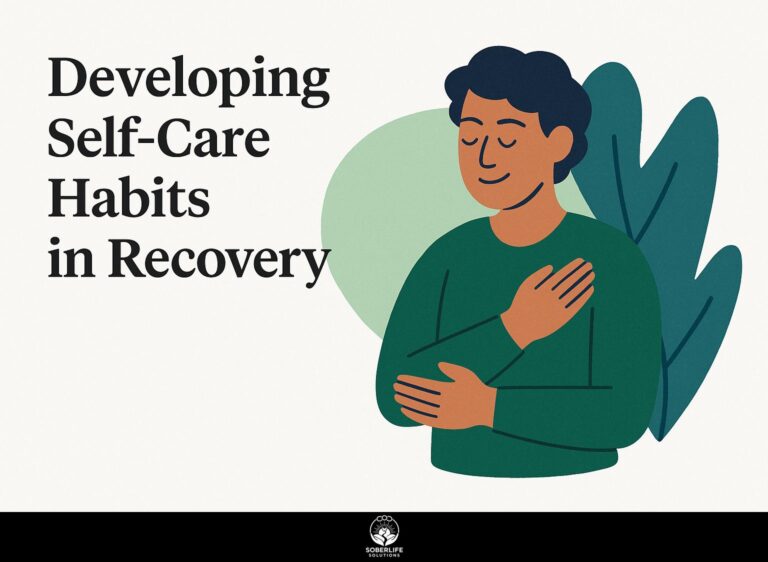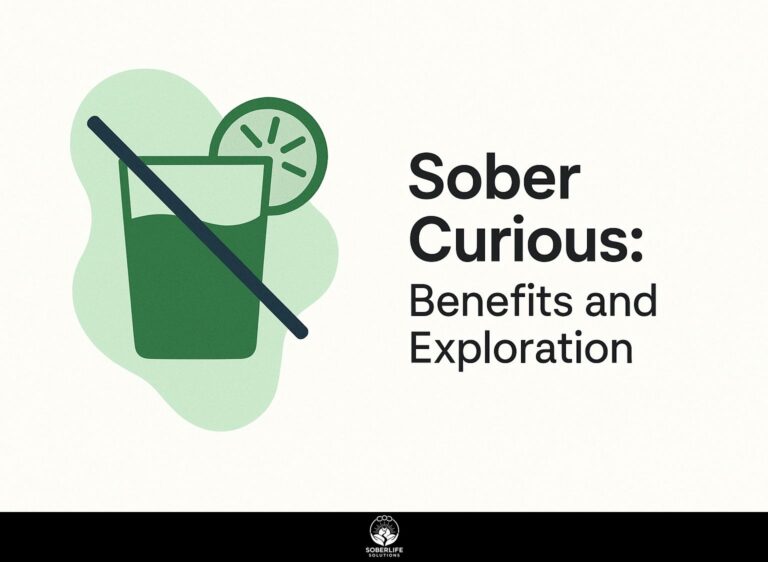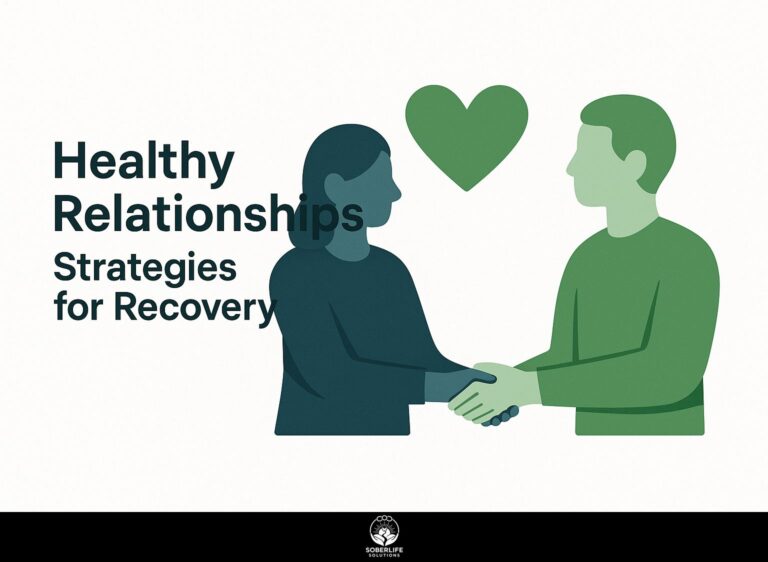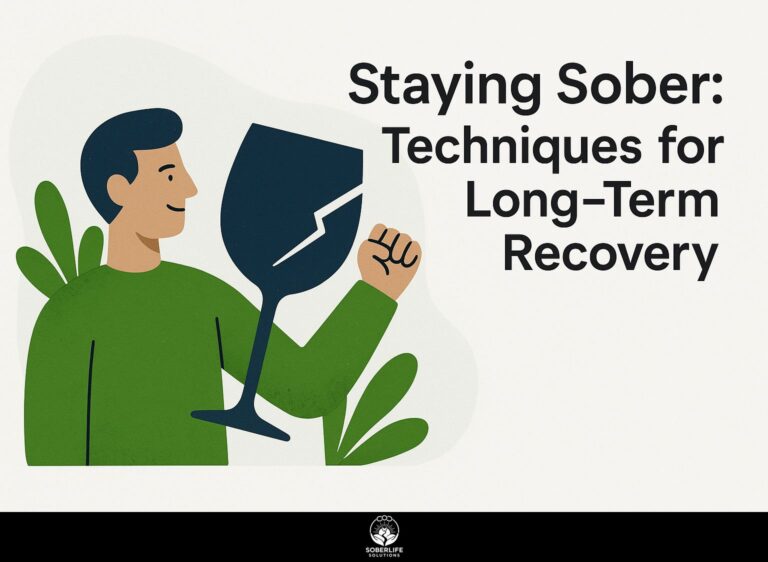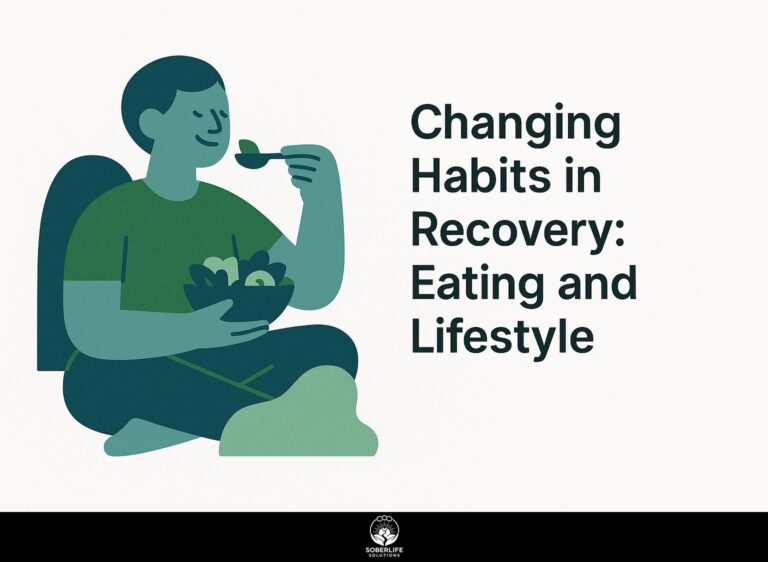Encouraging Recovery: Techniques and Support
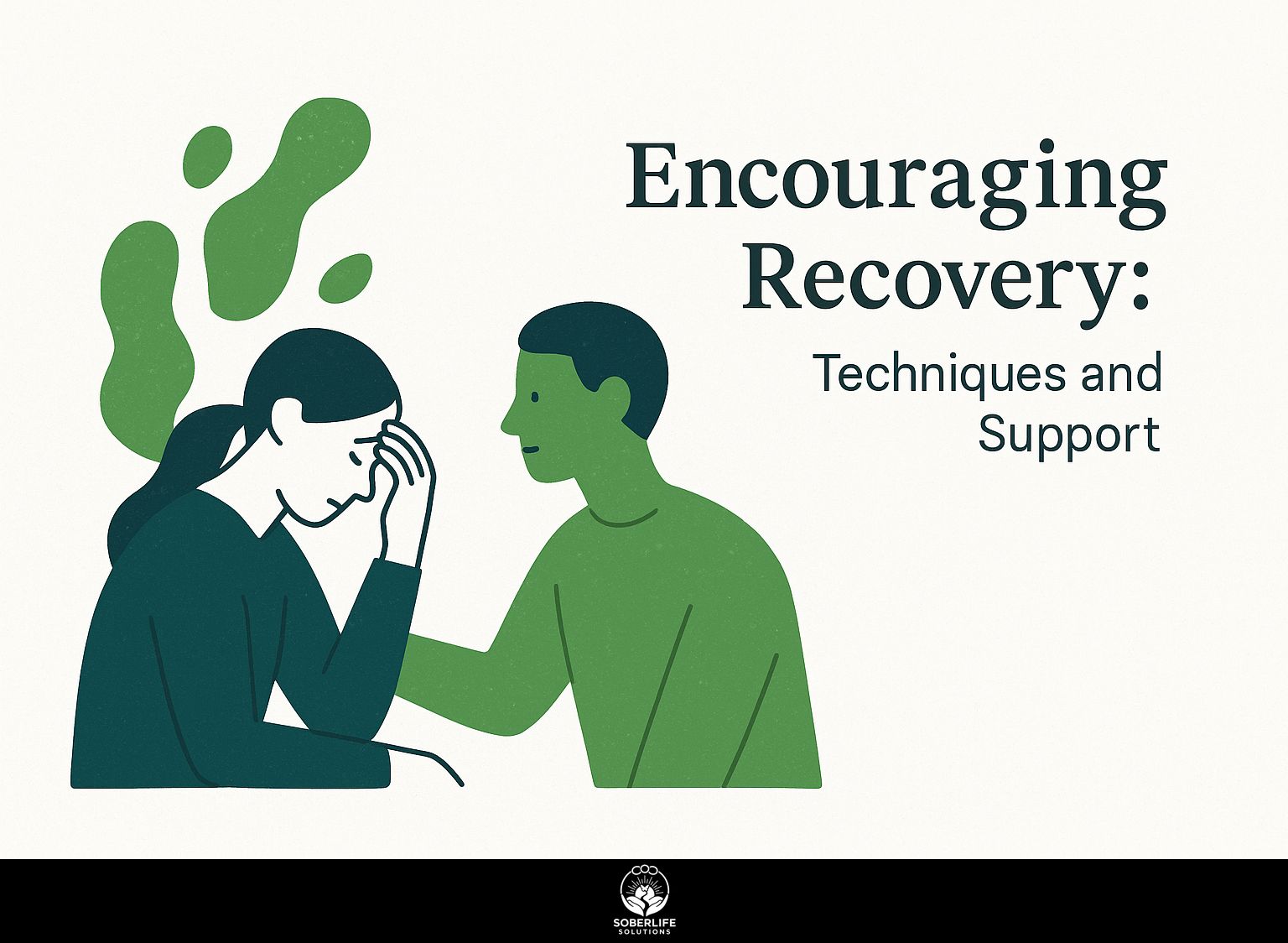
Getting past addiction is hard and needs strong support and helpful ways to recover. Dealing with alcohol or opioid addiction requires knowing the details of mental health, which is important for both the person affected and their family members. In this article, we’ll look at useful ways to support recovery, focusing on the value of community, mindfulness, and professional assistance. Join us to learn how to encourage recovery and create a solid network for long-term improvement.
Key Takeaways:
Understanding Recovery
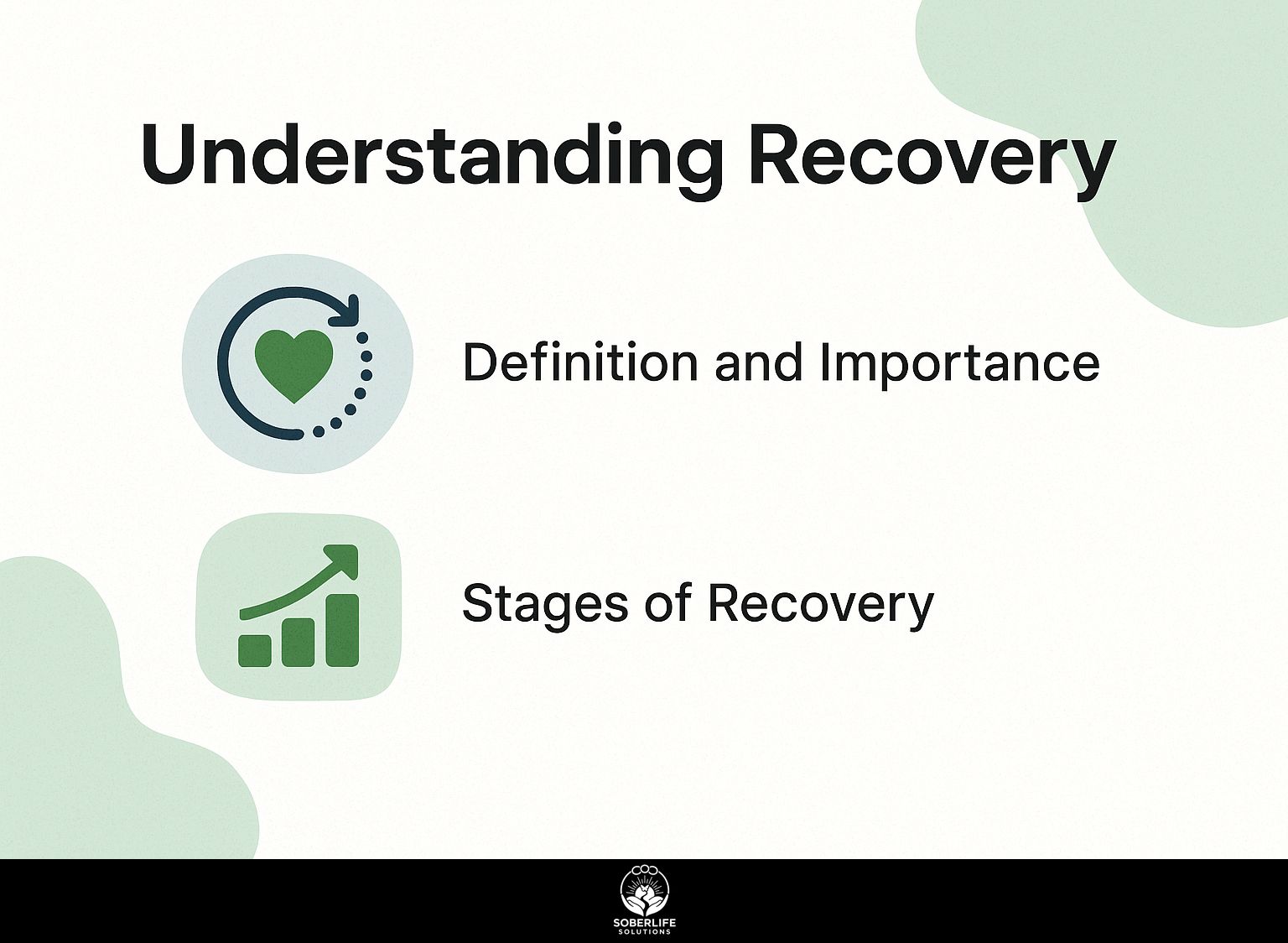
Knowing recovery is important for helping people heal, showing how complicated it can be and the need for knowledgeable methods. For an extensive analysis of this trend, our comprehensive study on mindfulness techniques and recovery strategies examines the role of mindfulness in navigating the complexities of alcoholism recovery.
Definition and Importance
Recovery is a process where people take back control of their lives, often needing different treatment options to help them get better.
This method is important for overcoming addiction because studies show that about 70% of people with substance use problems succeed with structured recovery plans.
These programs often include therapies like Cognitive Behavioral Therapy (CBT) and Motivational Interviewing, both customized to meet particular needs.
Peer support groups such as Alcoholics Anonymous (AA) or Narcotics Anonymous (NA) are important for offering community and responsibility.
Spreading knowledge about recovery can help fight stigma, encouraging a more caring society that recognizes the challenges of addiction.
Stages of Recovery
The recovery process has different steps:
- early thoughts
- considering change
- planning
- taking action
- keeping progress
- dealing with setbacks
Each step brings its own difficulties and achievements.
During the pre-contemplation stage, individuals may not recognize their need for change. Raising awareness can involve discussions with trusted friends or exploring educational resources.
People making decisions might reach out to organizations such as Al-Anon or SMART Recovery for support.
Creating a strong plan is important. This involves reaching out to treatment centers like Pyramid Healthcare to evaluate their programs.
The action phase starts when therapy commences, while maintenance revolves around building a network of ongoing support. Knowing what can cause a relapse is important for staying sober over time. Related insight: How to Create a Relapse Prevention Plan: Key Components
Techniques for Encouraging Recovery
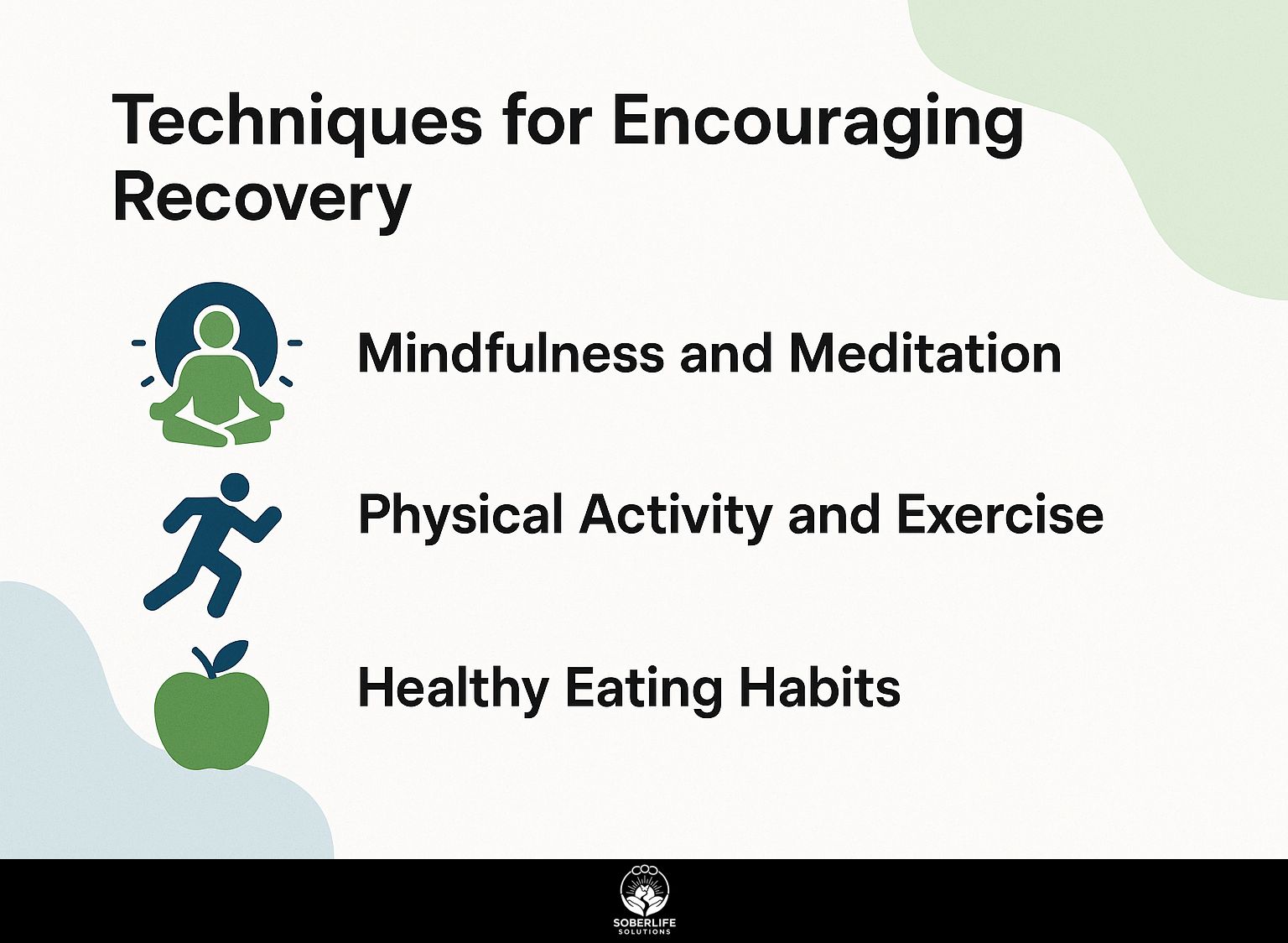
Using effective methods creates a supportive space for healing, helping people to rebuild healthy lives. One approach that has proven beneficial is incorporating mindfulness, which can significantly aid in recovery (explored in our guide on mindfulness techniques and recovery strategies).
Mindfulness and Meditation
Mindfulness practices, such as meditation, can reduce stress and anxiety, significantly contributing to emotional well-being during recovery.
To build a mindfulness routine, start with just five minutes of meditation daily, gradually increasing to 20 minutes as you become more comfortable.
Use guided apps like Headspace or Calm, which provide structured sessions for around $12.99 per month.
Try simple breathing exercises like the 4-7-8 method: breathe in for four seconds, hold for seven seconds, and breathe out for eight seconds.
Research shows that regularly practicing mindfulness can lower cravings and improve emotional control, making it a good way to aid recovery. According to research findings published by Rutgers University, mindfulness training significantly enhances opioid addiction treatment outcomes, further supporting its benefits in recovery.
Physical Activity and Exercise
Regular physical activity improves both physical health and mental health, which is important during the recovery process.
Incorporating exercise into your routine can be as simple as walking for 30 minutes a day, five days a week. Joining a local gym or class can provide structure and motivation; options like yoga or spinning typically cost around $30 per month.
Look for community resources, such as walking groups or free outdoor fitness classes, to create a supportive environment. Research indicates that doing physical exercises regularly can lessen anxiety and depression symptoms by up to 40%, providing an effective way to manage these conditions. For those interested in a comprehensive overview, this analysis by Mayo Clinic covers the full spectrum of how exercise can ease symptoms of depression and anxiety.
Healthy Eating Habits
Adopting healthy eating habits can significantly aid in recovery by providing essential nutrients that support mental and physical health.
Including foods rich in nutrients in your diet is important for good health. Focus on whole foods like fruits, vegetables, and lean proteins to supply necessary vitamins and minerals.
Apps like MyFitnessPal let you track your meals, showing where you can make changes. Drinking 2 liters of water each day can improve hydration, which is important for thinking clearly and keeping your mood steady.
Consider reducing sugar and processed food to minimize cravings and mood swings, creating a balanced nutritional foundation for recovery.
Support Systems
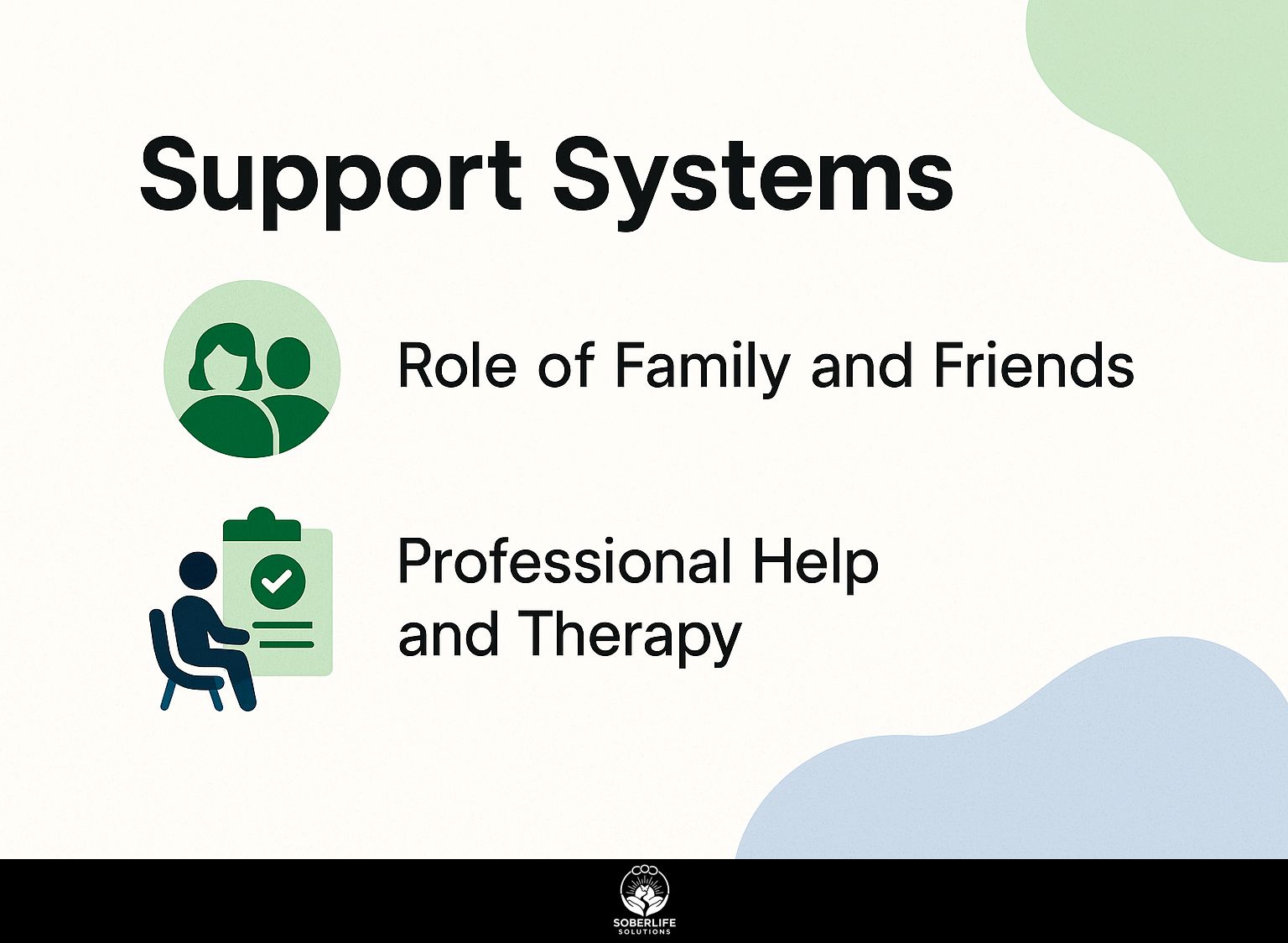
Creating strong support systems is important for recovery, offering emotional and practical help through shared experiences and awareness. Building these systems is crucial, as sober support systems can greatly enhance the recovery process by providing essential resources and connections.
Role of Family and Friends
Family and friends play an important role in recovery by offering steady support and meeting emotional needs.
To effectively support a loved one in recovery, consider these actionable methods.
- First, going to support groups like Al-Anon or Nar-Anon together helps you both learn about the difficulties.
- Next, establish healthy boundaries; clarify personal limits while remaining available emotionally.
- Encourage open communication about feelings, as studies show that expressing emotions can reduce stress and improve coping skills.
Keep in mind that relationships based on trust and knowledge improve recovery results. Supportive networks can raise success rates by as much as 60%.
Professional Help and Therapy
Getting professional help through therapy is an important step in recovery. It provides tools and strategies to deal with challenges effectively.
- Three effective types of therapy to consider are Cognitive Behavioral Therapy (CBT), group therapy, and family therapy.
CBT is particularly effective for tackling anxiety and depression by changing negative thought patterns. According to Verywell Mind, CBT also equips individuals with practical skills to manage stress and improve mental resilience.
Group therapy allows individuals to connect, share their experiences, and learn from each other, which can greatly increase motivation and offer comfort.
Family therapy focuses on relationships within the family, aiming to improve communication and settle arguments.
For local services, think about contacting Butler Hospital or Regions Hospital. Both are recognized for their thorough mental health programs.
Community Resources
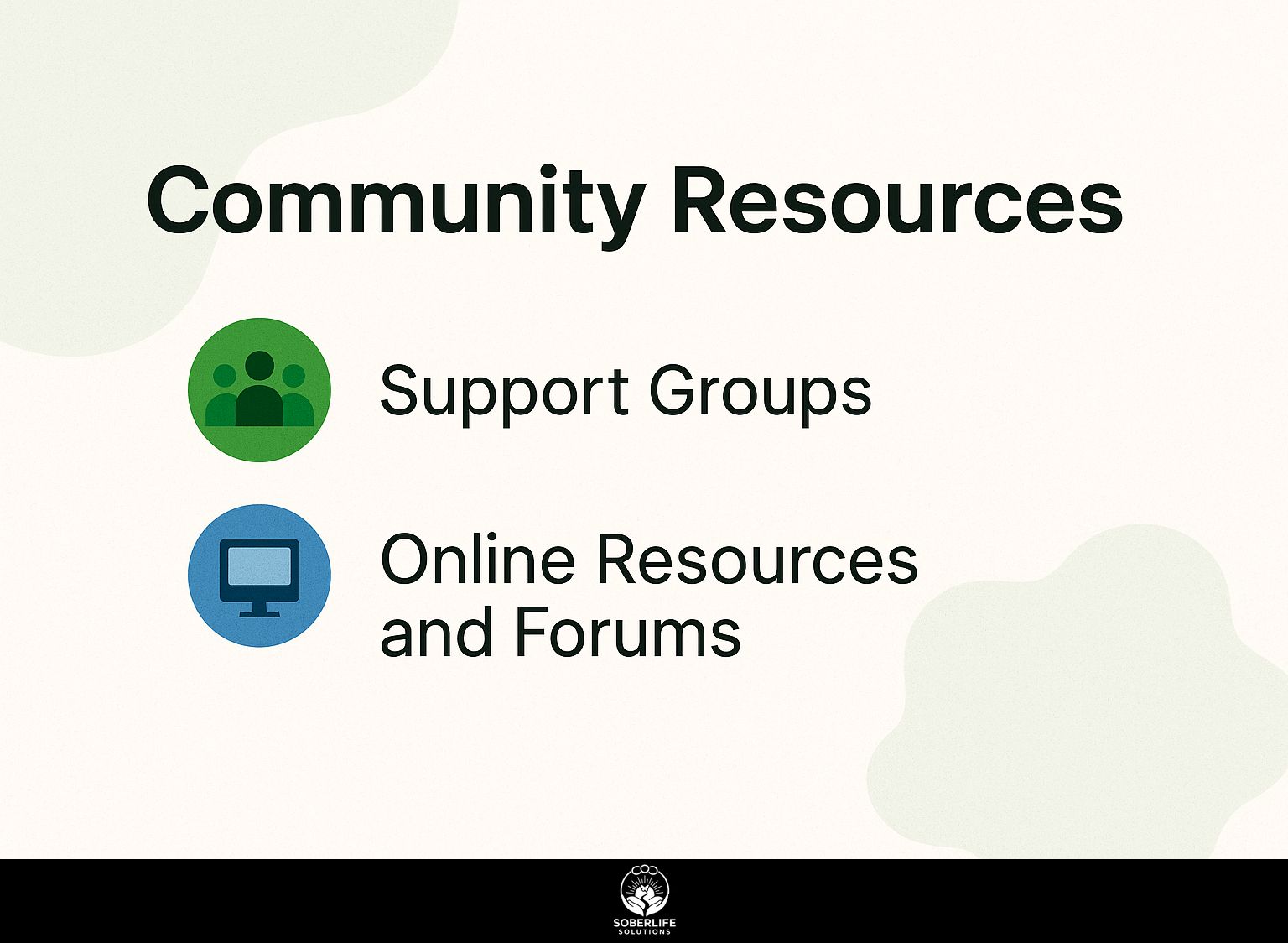
Community resources play an important role in recovery, providing different types of assistance and bringing together people who need help. One of our hidden gems in recovery support is the establishment of sober support systems, which offer a nurturing environment for individuals striving for sobriety.
Support Groups
Support groups like Alcoholics Anonymous offer a safe space for people to talk about their experiences and learn more about their recovery process.
To find local support groups, start by visiting the Alcoholics Anonymous website, where you can search for meetings by your area.
Community boards at local care centers often display information about various support groups available.
People who like online meetings can use platforms like SMART Recovery to find support sessions that match their schedule.
Joining these groups can greatly improve recovery, with studies showing a 50% higher success rate for those who take part.
Online Resources and Forums
Websites and discussion groups offer easy-to-access places for people looking for help and details about addiction and recovery.
These platforms bring people together by allowing them to share experiences and give advice. For immediate help, the National Helpline (SAMHSA) offers a confidential 24/7 service, connecting users with treatment resources and support.
On the other hand, online forums like the Reddit recovery communities provide a space for discussion and peer support, where members can share their stories and tips for success.
Educational materials from organizations like the Substance Abuse and Mental Health Services Administration (SAMHSA) provide important information on recovery methods, helping people handle the difficult path ahead.
Measuring Progress
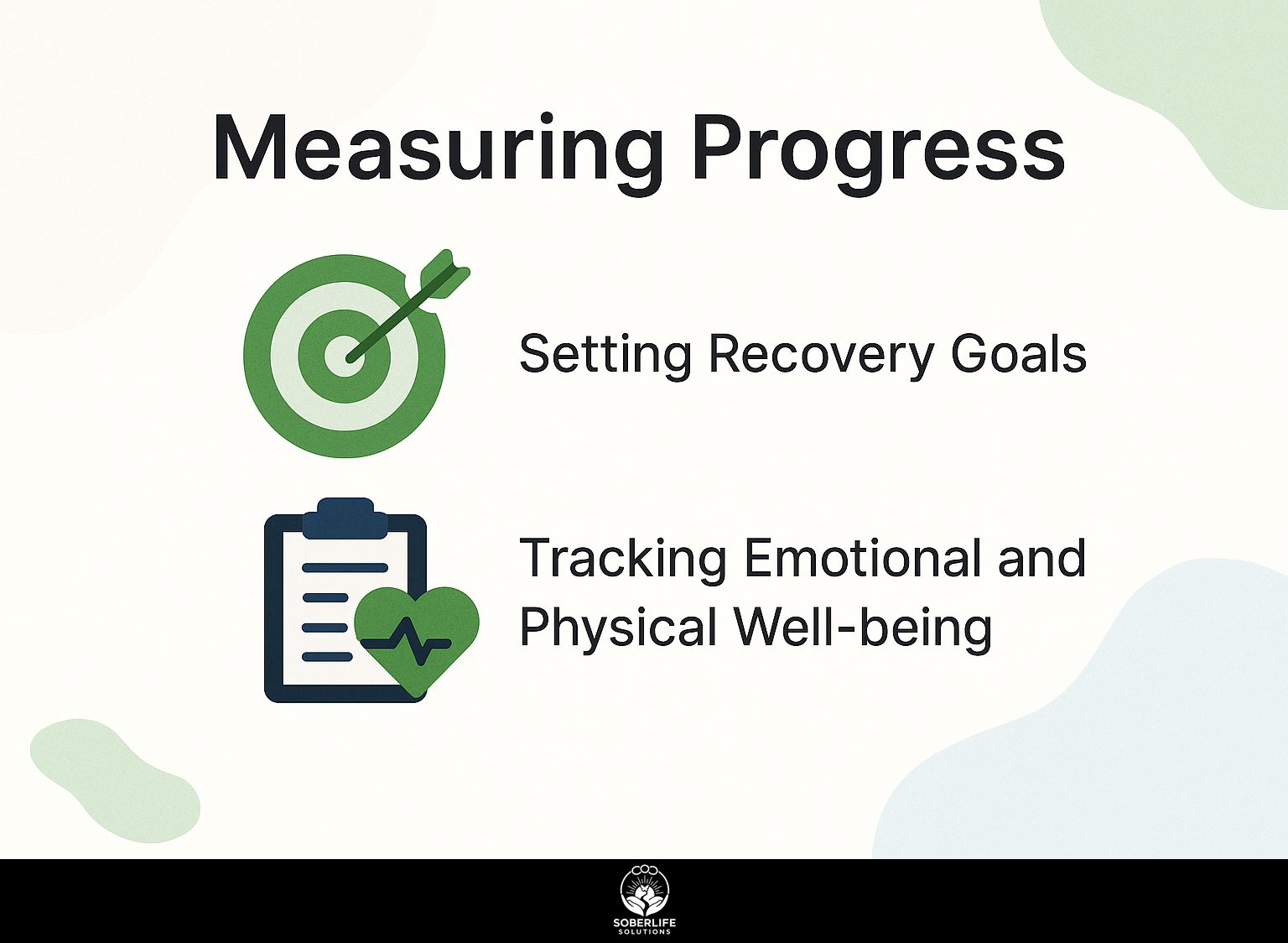
Measuring progress is important in recovery, helping people set achievable goals and monitor their emotional and physical health.
Setting Recovery Goals
Setting specific, achievable recovery goals facilitates motivation and accountability, critical components for sustained progress.
To ensure these goals work well, apply the SMART criteria: each goal should be clear, quantifiable, realistic, important, and have a deadline. For instance, instead of saying “I want to feel better,” specify “I will attend weekly therapy sessions for the next three months.”
Dividing this into smaller steps, such as setting up meetings and writing notes between meetings, can help make progress easier to see.
Use tools like Trello or Asana to monitor these tasks and milestones, allowing you to easily view progress and adjust when necessary.
Tracking Emotional and Physical Well-being
Writing about feelings and health in diaries or using apps can help you understand how you are recovering and notice changes.
Daily journaling is a powerful method; take just five minutes each evening to reflect on your emotions and experiences.
Incorporating an app like Daylio allows for quick mood tracking, as you can log feelings and activities on the go. Scheduling weekly check-ins with a therapist can help assess patterns in your emotional responses and adjust strategies accordingly.
When you use these approaches together, you get a better idea of your mental health and find triggers that might need more attention.
Frequently Asked Questions
What is the importance of encouraging recovery?
Helping people recover is important for those dealing with mental health or substance abuse problems. It offers support, motivation, and resources to tackle difficulties and reach lasting health.
What are some techniques for encouraging recovery?
Some techniques for encouraging recovery include providing a safe and non-judgmental environment, promoting self-care and healthy coping mechanisms, and actively listening and showing empathy towards the individual’s experiences.
How can family and friends help someone during their recovery process?
Family and friends can help someone recover by learning about mental health and substance abuse, being patient and empathetic, and providing practical support and emotional comfort when needed.
Why is it important to involve a professional in the recovery process?
Having a professional involved in the recovery process can give people the tools and resources they need to handle their condition. They can also offer a fair and unbiased view of the recovery process.
How can one maintain a positive outlook during the recovery process?
Maintaining a positive outlook during the recovery process can be achieved by setting realistic goals, celebrating small victories, surrounding oneself with a supportive network, and being patient and kind to oneself.
What are some ways to continue supporting recovery after it has been achieved?
When someone feels better, keep offering help. Check in regularly, promote healthy routines, and be patient if setbacks occur.

